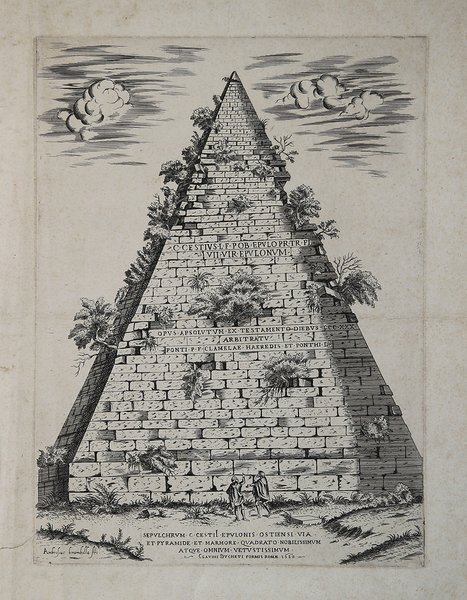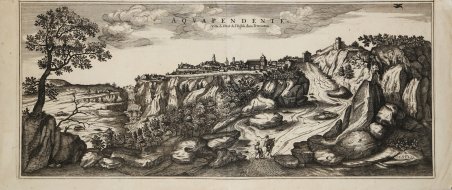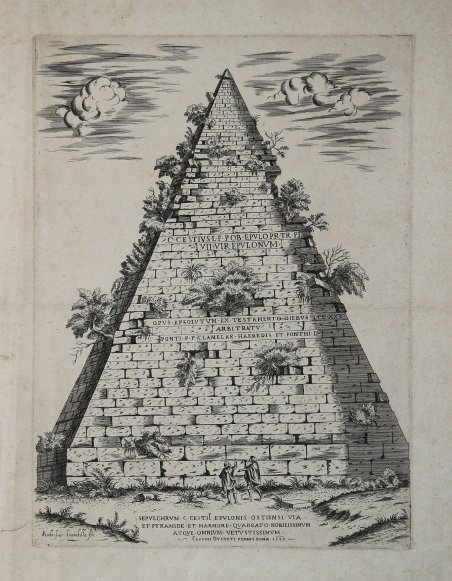Detalles
Lugar de impresión
Amsterdam
Grabadores
BLAEU Johannes
Descripción
Veduta della città basata sul modello del Pozzoferrato, pubblicato nel Theatrum Civitatum di Braun & Hogenberg del 1598. L'opera è per la prima volta pubblicata nel ' Theatrum Civitatum et admirandorum Italiae, ' stampato da Johannes Blaeu ad Amsterdam nel 1663. Questo esemplare è tratto dal ' Nouveau Theatre de l'Italie ' pubblicato ad Amsterdam nel 1704/5 da Pierre Mortier e ristampato da R. Alberts nel 1724. Johannes Blaeu, durante la sua lunga attività editoriale pubblica tre volumi sulle città italiane. Nel 1663 i primi tre, suddivisi in Stato della Chiesa, Roma e Regno di Napoli e Sicilia. Alla sua morte i suoi eredi danno alla luce altri due volumi datati 1682 incentrati sulle città del Piemonte e della Savoia, poi ristampati da altri editori nel 1693 e 1697. ' ' Il francese Pierre Mortier pubblica una ristampa nel 1704/5, intitolata Nouveau Theatre de l’Italie. L’opera è in quattro volumi e comprende le lastre del Blaeu, ritoccate e modificate in piccola parte, integrate dall’aggiunta di numerose nuove mappe di proprio disegno, raffiguranti le città della parte settentrionale della penisola, racchiuse nel primo volume dell’opera. L’atlante del Mortier venne pubblicato con testo latino, francese e olandese. La particolarità che differenzia le due edizioni di Blaeu e Mortier è rappresentata dal fatto che il testo non è al verso della singola mappa (che quindi è bianca nel retro), ma si trova all’inizio di ogni singolo volume. Il grande successo dell’opera diede origine ad un’ulteriore ristampa, praticamente identica, curata da R. Alberts ed edita nel 1724/5. Le opere tratte dalla prima edizione del Blaeu, 1663, sono caratterizzate dalla presenza del testo al verso, qui assente. Incisione in rame, in ottimo stato di conservazione. Bibliografia Koeman pp. 332/338, Cremonini pp. 83-90. View of the city based on the model of Pozzoferrato, published in Braun & Hogenberg's Theatrum Civitatum of 1598. ' Work first included in ' Theatrum Civitatum et Admirandorum Italiae ad aevi veteris & praesentis temporis faciem expressum à Ioanne Blaeu G. F., ' printed by Johannes Blaeu, Amsterdam, 1663. Example taken from ' Nouveau Theatre de l'Italie ' - Amsterdam nel 1704/5 - by Pierre Mortier or from the da R. Alberts issue (1724). Without descriptive text on the back. ' The ' Theatrum Civitatum et Admirandorum Italiae ' is the first monumental town book entirely covering Italy, preceded by the "pocket-size" ' Italia Hodierna ' by Jodocus Hondius jr. (1627) and realized in likely competition with Johannes Janssonius who, in 1657, published the ' Theatrum praecipuarum urbium, ' containing a volume dedicated to Italy. ' Johannes Blaeu, during his long editorial activity published three volumes on Italian cities. In 1663 the first three, divided into the State of the Church, Rome and the Kingdom of Naples and Sicily. ' At his death his heirs gave birth to two more volumes dated 1682 focused on the cities of Piedmont and Savoy, then reprinted by other publishers in 1693 and 1697. Pierre Mortier publishes a reprint in 1704/5, entitled ' Nouveau Theatre de l'Italie. The work is in four volumes and includes the plates of Blaeu, retouched and modified in small part, supplemented by the addition of several new maps of his own design, depicting the cities of the northern part of the peninsula, enclosed in the first volume of the work. Mortier's atlas was published with Latin, French and Dutch texts. The great success of the work gave rise to a further reprint, virtually identical, edited by R. Alberts and published in 1724/5. ' Etching, very good condition. Literature Koeman, ' Atlas Neerlandici, pp. 332/338; Cremonini pp. 49-52, 39. Cfr.



Descubre cómo utilizar
Descubre cómo utilizar

